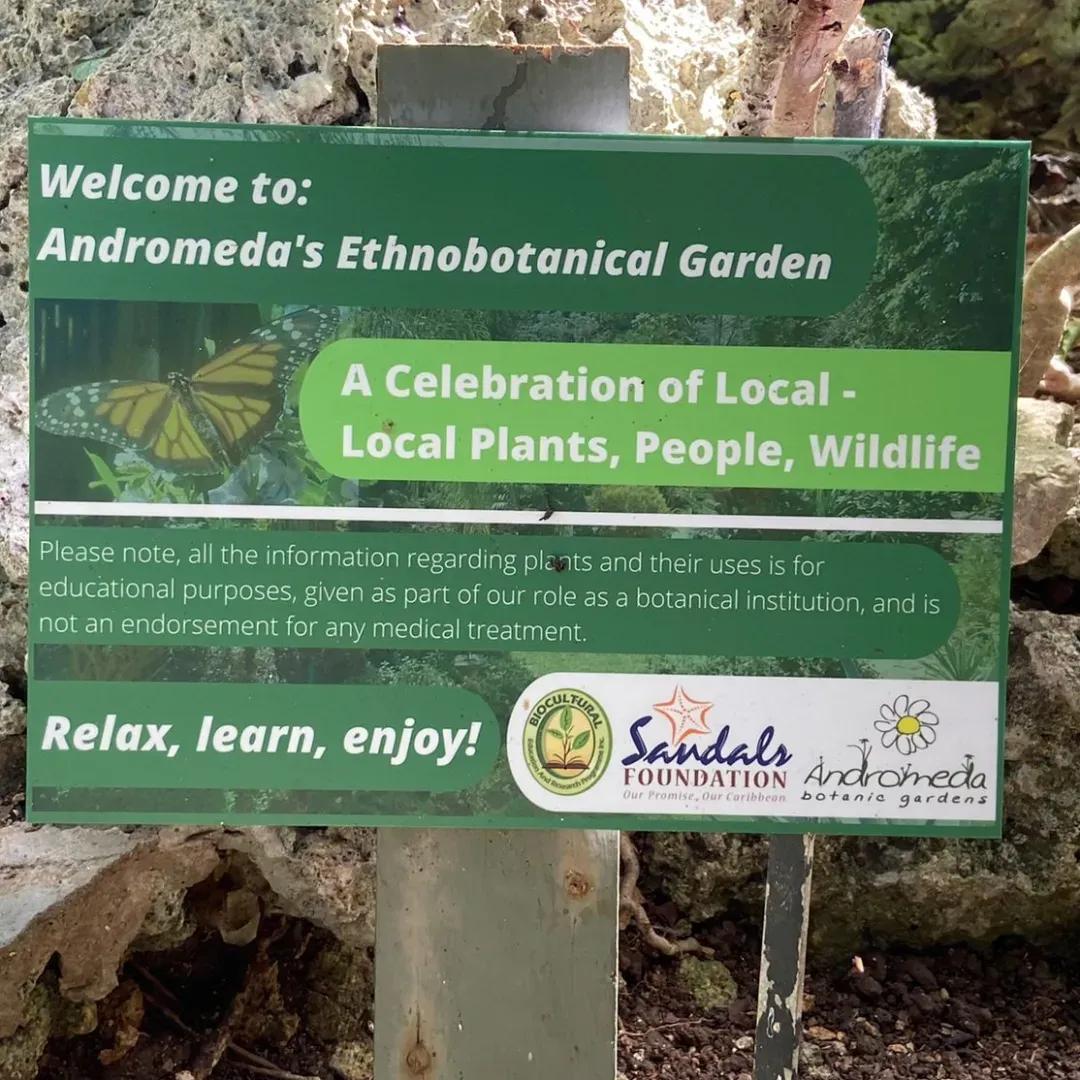
- barbados|
- environment|
- December 2022
BRIDGETOWN, Barbados, December 5, 2022— A drive along the east coast of Barbados will take you to the breathtakingly beautiful Andromeda Botanic Gardens, a haven of tropical plants and shrubs that recently welcomed 900 newly added food-bearing and ornamental trees and plants, signs and a wooden deck to be used for learning and recreational purposes.
As the island enters its 56th year of independence and celebrates its first year as a republic, the Sandals Foundation-sponsored newly opened ethnobotanical gardens and its investment into the preservation of the space’s cultural importance to the people of Barbados was paramount to the Sandals team.
"These gardens are an important part of Barbados' culture and biodiversity, and they help to maintain healthy ecosystems and enable natural resource conservation," said Heidi Clarke, Executive Director of the Sandals Foundation.
Clarke continued, "By collaborating with our partners at Passiflora Ltd., we are enhancing and diversifying the existing plant collection on the island, both in terms of historic significance and the growing current interest in native plants and ethnobotany.”
Ethnobotany is the study of how people of a particular region make use of native plants to support their way of life including their food, shelter, and health needs.
The installation of 50 unique interpretive signs by the philanthropic arm of Sandals Resorts International, will also help sensitize the park’s visitors of how much the identity of Barbados is connected to its plants.
The ethnobotanical garden completes the marvelous collection of gardens present at Andromeda, and according to Sharon Cooke, Managing Director of Passiflora Ltd., park managers for Andromeda Botanic Gardens, the wide variety of flora is woven into the lives of people in Barbados.
“People, throughout history, have used plants for a variety of reasons. For food, jewelry, fishing aids, and even shampoo! Barbadians, with their connection to their African heritage, continue this tradition. We hope to protect, educate and encourage this wonderful part of our heritage by providing a space where locals can come and use the plants—not just for medicine.”
Cooke also stated that the ethnobotanical garden is a free resource for Bajans, while it provides visitors with a direct experience of Barbados' cultural and natural heritage.
"This ethnobotanical garden provides a safe haven for our wildlife, particularly the world’s most recognizable but this year’s endangered listed butterfly—the monarch butterflies," Cooke said.
With the Sandals Foundation's goal of instilling a true appreciation of nature in locals and guests, as well as making environmental education a priority for future generations, this project is part of the company's 40 for 40 Initiative, a series of sustainable projects implemented across the Caribbean to commemorate Sandals Resorts International's 40th anniversary.
